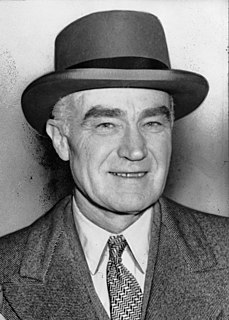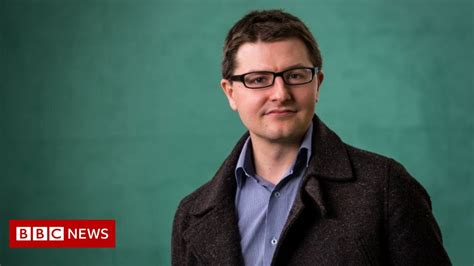A Quote by Emily Giffin
Even if we no longer have much in common, we would have always had the past, which, in some ways, is just as important as the present or future. It is where we come from, what makes us who we are.
Related Quotes
These tenses-past, present and future-are not the tenses of time; they are tenses of the mind. That which is no longer before the mind becomes the past. That which is before the mind is the present. And that which is going to be before the mind is the future. Past is that which is no longer before you. Future is that which is not yet before you. And present is that which is before you and is slipping out of your sight. Soon it will be past.
True forgiveness deals with the past, all of the past, to make the future possible. We cannot go on nursing grudges even vicariously for those who cannot speak for themselves any longer. We have to accept that we do what we do for generations past, present and yet to come. That is what makes a community a community or a people a people-for better or for worse.
Even time is a concept. In reality we are always in the eternal present. The past is just a memory, the future just an image or thought. All our stories about past and future are only ideas, arising in the moment. Our modern culture is so tyrannized by goals, plans, and improvement schemes that we constantly live for the future. But as Aldous Huxley reminded us in his writings, "An idolatrous religion is one in which time is substituted for eternity...the idea of endless progress is the devil's work, even today demanding human sacrifice on an enormous scale.
How often are you worrying about the present moment? The present moment is usually all right. If you're worrying, you're either agonizing over the past which you should have forgotten long ago, or else you're apprehensive over the future which hasn't even come yet. We tend to skip over the present moment which is the only moment God gives any of us to live.
Mindfulness is about finding ways to slow down and pay attention to the present moment-which improves performance and reduces stress. It’s about having the time and space to attend to what’s right in front of us, even though many other forces are trying to keep us stuck in the past or inviting us to fantasize or worry about the future. It’s about a natural quality each of us possesses, and which we can further develop in just a few minutes a day.
We human beings have enormous difficulty in focusing on the present; we always thinking about what we did, about how we could have done it better.... or else we think about the future, about what we're going to do.... But at this precise moment, you also realize that you can change your future by bringing the past into the present. Past and future only exist in our mind. The present moment, though, is outside of time, it's Eternity.... It isn't what you did in the past the will affect the present. It's what you do in the present that will redeem the past and thereby change the future.
When we no longer pray, no longer listen to the voice of love that speaks to us in the moment, our lives become absurd lives in which we are thrown back and forth between the past and the future. If we could just be, for a few minutes each day, fully where we are, we would indeed discover that we are not alone and that the One who is with us wants only one thing: to give us love
Psychoanalysts are fond of pointing out that the past is alive in the present. But the future is alive in the present too. The future is not some place we’re going to, but an idea in our mind now. It is something we’re creating, that in turn creates us. The future is a fantasy that shapes our present.
Marriage is an effort to legalize love. It is out of fear. It is thinking about the future, about the tomorrows. Man always thinks of the past and the future, and because of this constant thinking about past and future, he destroys the present. And the present is the only reality there is. One has to live in the present. The past has to die and has to be allowed to die.

































